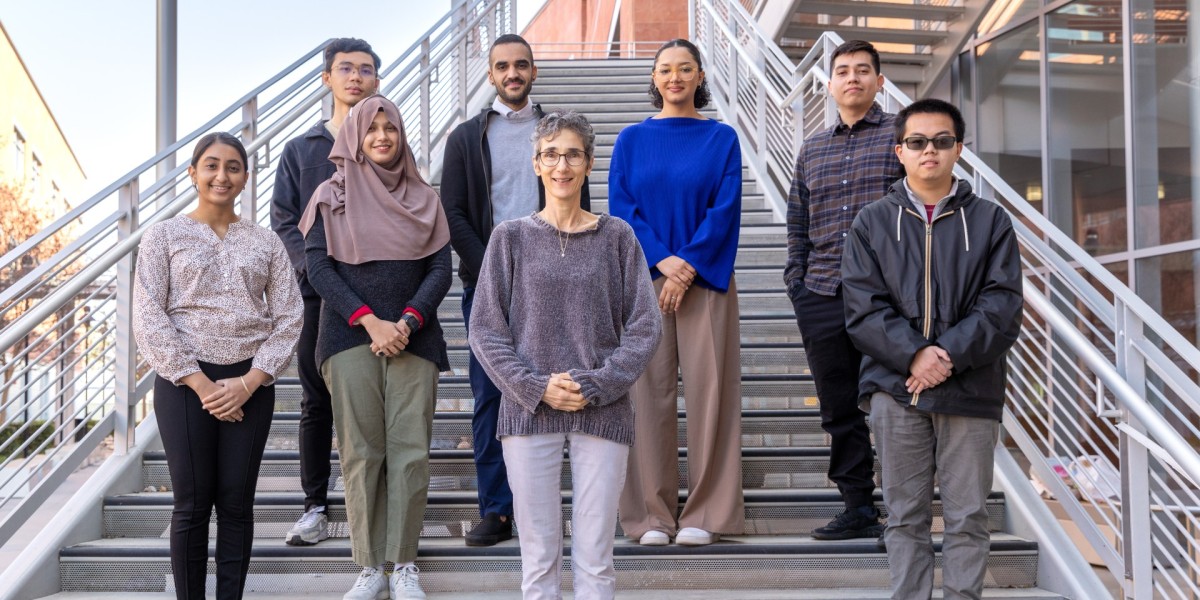
Before You Apply
The URISE program has four pillars, 1) faculty mentored research, 2) entering research curriculum, 3) faculty mentor training in inclusivity, and 4) building scientific identity with community.
Student participants explore research and prepare for on-campus and off campus summer research through an activity-type course (contact [email protected] for more information). They also take part in various workshops, seminars, and other program activities connecting them with peers and their communities year-round which all aim to help student discover and solidify their scientist identity (contact [email protected] for more information). In their final year, students will prepare and submit competitive applications for PhD programs in their field of study with support from the U-RISE program.
On-campus faculty mentors are specifically trained to offer an inclusive research environment (contact [email protected] for more information). The U-RISE program contributes between $1,000 and $1,500 in supplies towards the research activities of the U-RISE student.
U-RISE students receive up to 60% of their tuition and an annual stipend of up to $13,644, depending on their Cal State LA financial package. They also will receive up to $3,500 towards their off-campus summer research experience to cover travel and living costs. U-RISE students are also expected to present their research at a conference and will receive up to $1,000 to cover travel, lodging, and registration fees.
Along with participants from other research training programs on campus, U-RISE students and their faculty mentors will be invited to celebrate research at an annual two-day retreat for which lodging and travel (contact [email protected] for more information).
The U-RISE program seeks undergraduate students majoring in a field related to the biomedical sciences such as Biology, Chemistry, Biochemistry, Physics, Mathematics, Kinesiology, Nutritional and Food Sciences, Psychology, Nutritional Sciences, Mechanical Engineering, Civil Engineering, Electrical and Computer Engineering.
Students looking for more in-depth research experiences are encouraged to apply.
All applicants must be either a U.S. citizen or Legal Permanent Resident.
The ideal candidate is a sophomore with two to three years left until graduation.
The applicant has completed the first semester of their major specific courses (e.g., BIOL 1100 Cellular Basis of Life or CHEM 1100 General Chemistry I) with a grade of at least a B- and has developed a strong interest to explore a research career in the biomedical sciences.
It will take you about 10 minutes to fill out the form itself. In addition, before you start the application, please gather the following items as PDF files for upload:
- Your transcripts of all your college and university work. Coursework from Cal State LA can be uploaded as unofficial transcripts which you download from GET;
- A copy of your Degree Planner from GET;
- A current curriculum vitae (CV) or resume; if you are unsure about what either is and which to choose, you can find some resources on CVs and resumes here.
- An essay that addresses the following topics sequentially. One to two paragraphs per topic is typically sufficient.
- Please briefly describe previous research or research-related experiences (i.e. CURE assignment, independent study. . .) that inspire you to prepare for a research-intensive career. What research question did you pursue; what experimental work did you do; and what is the significance of your results?
- The U-RISE Program is designed to prepare students for admission and success in PhD programs immediately following the BS/BA degree at Cal State LA. Please explain how these goals are consistent with your plans.
- Discuss your career plans after you complete your formal education, particularly how research fits into these plans; and why you consider the PhD as necessary for your future work.
- It is expected that you will complete the BS degree with a 3.3 GPA or higher in your major. Explain any discrepancy between your grades in academic coursework and your talents and potential. If applicable, how will you raise your GPA as a U-RISE scholar?
- What choices will you make in your career to benefit society, especially marginalized communities? What lived experiences drive you to serve in this way?
- If applicable, a notarized copy of your Alien Registration ("Green") card.
You also need to arrange for two letters of recommendation written on your behalf by science, engineering, or mathematics faculty members who know you well. These may be from previous schools you have attended. Please ask your recommenders to submit their letters and complete a brief questionnaire here by August 6, 2025.
Our first application cohort review will begin August 4, 2025.